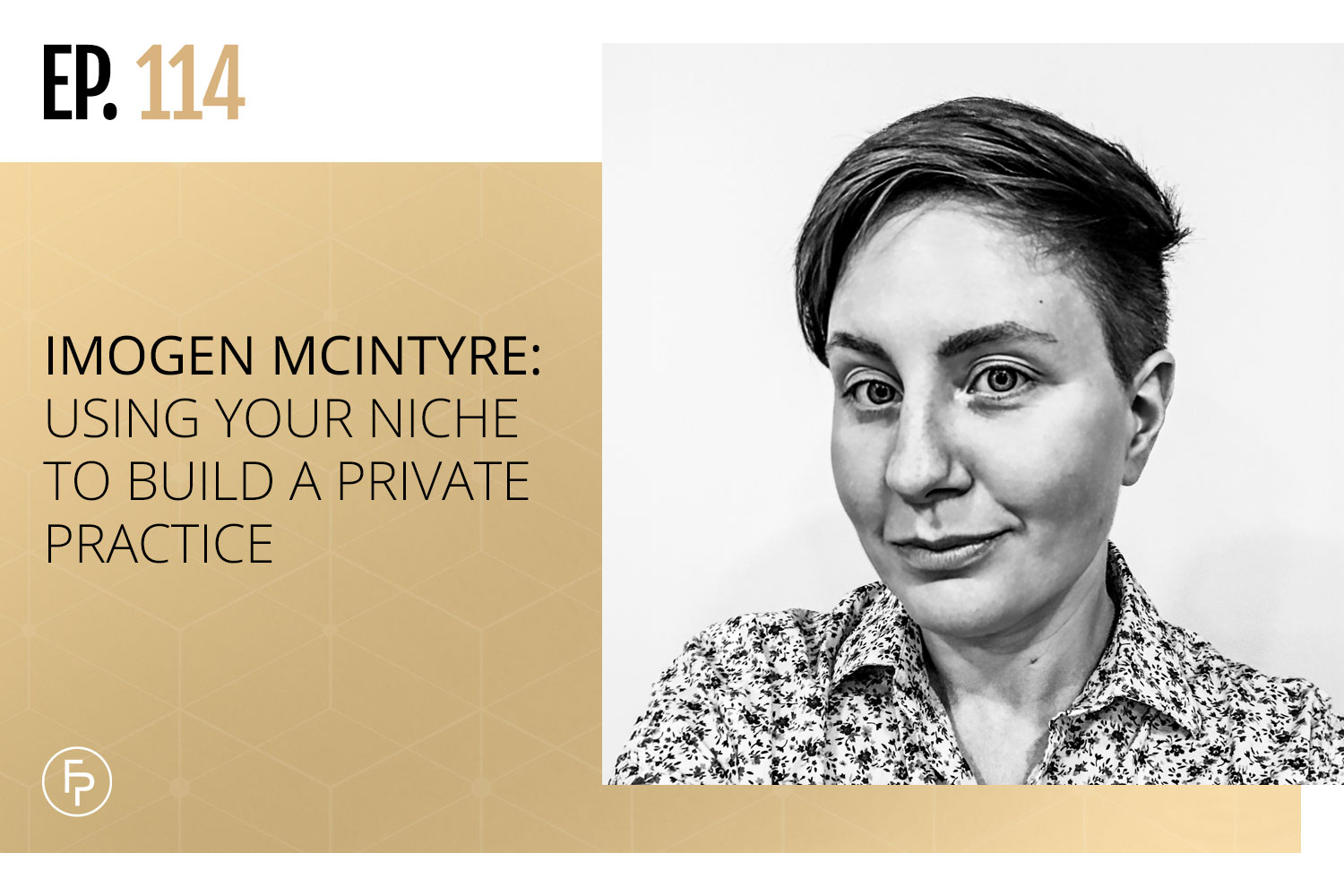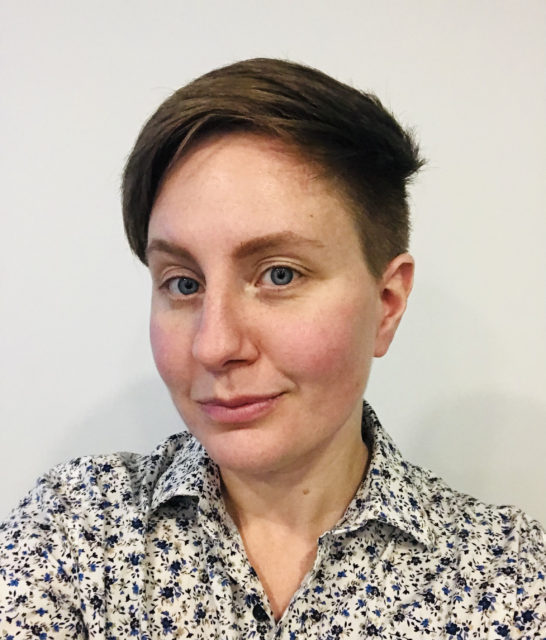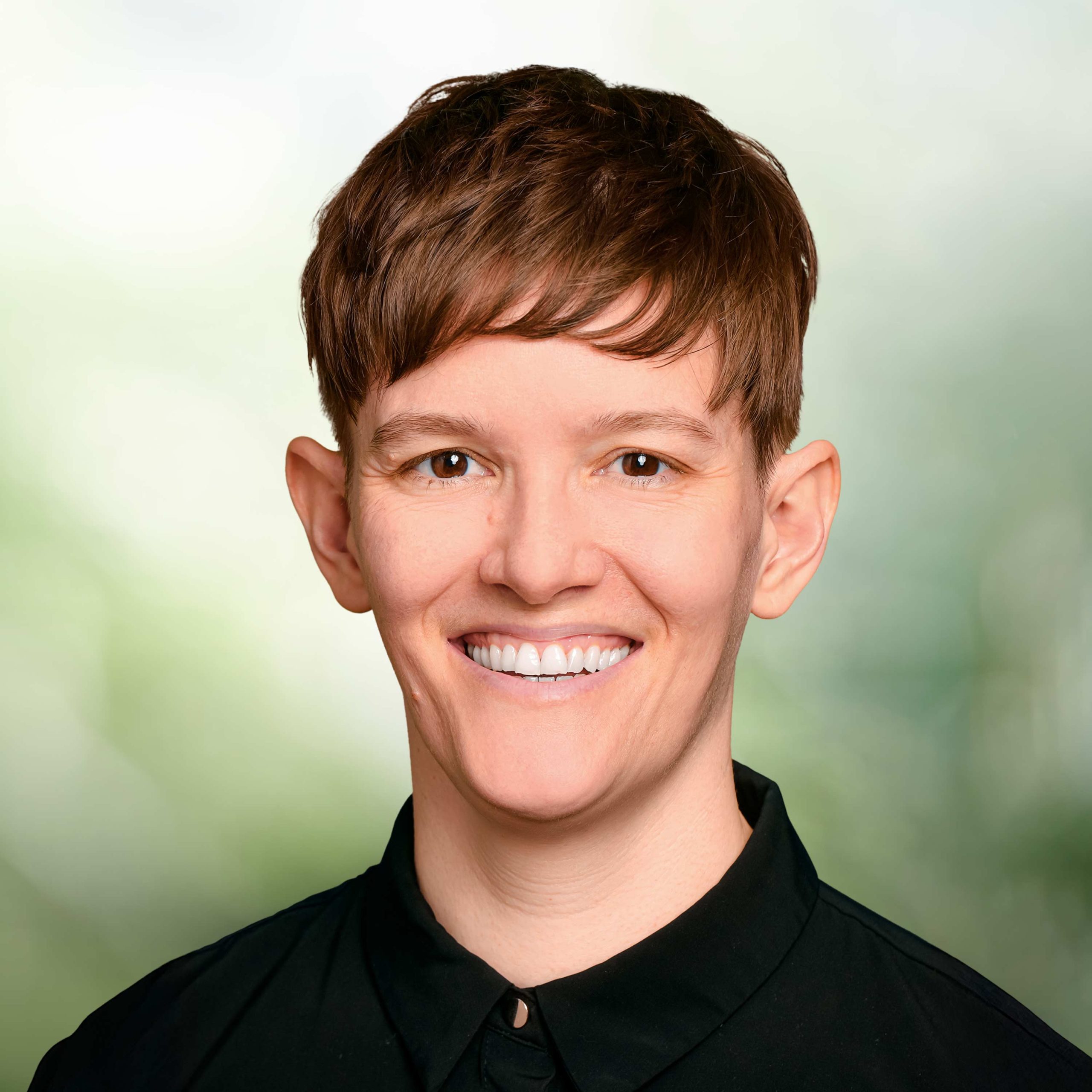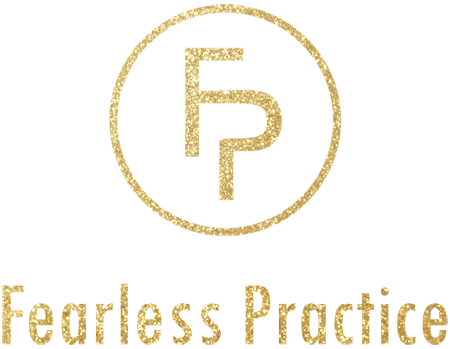IMOGEN McINTYRE: USING YOUR NICHE TO BUILD A PRIVATE PRACTICE | EP 114

How can you market your practice successfully in a big city? Do you have a specific niche that you want to figure out how to use well to connect with your best-fit client? Are you on the verge of considering to open two practices?
Everyone talks about niching down, but it’s always helpful to speak to someone that did it and made it work well! Learning from other’s experience is a powerful tool that will help you on your own path to launching and sustaining a successful Canadian private practice.
In this podcast episode, Imogen and I discuss the entry into becoming a clinical social worker, launching and running two Canadian practices, and really knuckling down into a niche to allow the business to flourish.
Jane is an all-in-one health and wellness practice management platform designed to be helpful to you, no matter how or where you practice. Available online and on any device, Jane offers branded online booking, beautiful scheduling, insurance management, customizable charting, online intake forms, patient reminders, integrated payment processing, online appointments (telehealth) and more! Use the code FEARLESS at signup to receive your first month completely free!
MEET IMOGEN
Imogen Mcintyre is a Registered Clinical Social Worker who has founded two private practices, one focused on LGBTQ and neurodivergent issues, the other focused on couples therapy for sticky topics: the ones that can be hard to talk about with friends or family (think infidelity recovery, mismatched libidos or sexual preferences, shifts in gender or sexual identity, mental illness and relationships, and many more). Imogen practices from IFS, Gottman, and EFT informed approaches and strives to provide couples therapy without shame or blame.

Learn more about Imogen on their Psychology Today profile, and private practice website.
In This Episode
- Why Imogen decided to become a clinical social worker
- Building your own Canadian private practice
- A clinical social worker as opposed to a social worker
- Imogen’s unique service offering
- Marketing in a big city
- Imogen’s advice to listeners
Why Imogen decided to become a clinical social worker
In 2015, Imogen got their Bachelors of Social Work. At the time, Imogen was a single mom and decided to go into social work.
‘I started off practicing in child protection, which is definitely a tough training ground, and I think where a lot of people start off.’ – Imogen McIntyre
Imogen started in Vancouver before practicing in other places, and also worked for the government at the start of their career. They worked in youth work for a year, and even though it was an enjoyable experience, it wasn’t financially sustainable, so Imogen went back to school to complete a masters degree.
After completing their masters, Imogen was hired by a health authority and greatly enjoyed working with the team, but then went on maternity leave.
‘I went off on mat leave, and – really – I got bored during mat leave and I was looking for ways to entertain myself … Ultimately, I saw this post … [for a job] in a town outside of Vancouver for private practice … And I ended up just loving it!’ – Imogen McIntyre
Imogen worked for this group practice outside of town for a year, before getting used to the idea of doing it themselves!
Building up your own Canadian private practice
One of the drivers for Imogen to open and pursue their own business was to have more freedom and autonomy with time. Especially since one day Imogen requested some time off from their previous work to take their child to the dentist, and the request was denied!
‘I worked with a really great team, I loved my team so much, but some of the processes of working in a giant organization sometimes just felt … restrictive, and they felt like barriers to living the life I wanted to be living.’ – Imogen McIntyre
Now, Imogen has more autonomy in terms of time, and is working in an environment where they can meet their needs as well as the needs of their family. Imogen hired four associates, a mix of social workers and RCCs, which is a good blend to take more insurance.
A clinical social worker as opposed to a social worker
The clinical social worker designation is new in Canada, so it’s not widely known yet, sometimes even in professional circles. It includes extra education, as opposed to standard social work, extra course work, and 12 500 supervised hours are needed after the masters degree, including an exam!
‘It’s mostly focused on assessment, diagnosis, and supervision.’ – Imogen McIntyre
With the RCSW, Imogen can diagnose things like ADHD and anything within the DSM, although there are some things that Imogen won’t diagnose for due to not personally feeling fully qualified yet.
‘Because my practice is focused on neurodivergent issues, it’s very handy to be able to assess and diagnose ADHD. A lot of my clients find it very validating to have that official diagnosis, and so to be able to provide that I found to be really valuable.’ – Imogen McIntyre
Imogen’s unique service offering
Imogen noticed with their existing clients that people were asking for letters for different purposes, and Imogen wanted to figure out a way to offer clients this service while still being billed for the time and effort it takes to write them.
‘I’ve put that option on Jane App so that they can see my availability and fit it in there.’ – Imogen McIntyre
Doing it through the Jane App platform means that the time during the sessions is dedicated specifically to the clients needs, and not for writing the letter itself.
Marketing in a big city
Imogen was able to build up their clientele in Vancouver relatively quickly, which is a challenge!
‘I think part of it is having a really in demand niche, the LGBTQ and neurodivergent work is really in demand … The fact that we’ve added neurodivergence as an area of specialty means that when people are sorting through those fifty or more [other] service providers, they’ll see someone who specializes in ADHD or autism and they’ll say, “That’s the person for me”.’ – Imogen McIntyre
Therefore, having a very in depth niche is what greatly helped Imogen to build their practice up relatively quickly and successfully. Seeing this success also helped encourage Imogen to pursue this career, since they could see that there was a need in the community that they could serve.
Additionally, using Google Ads is what helped Imogen to build up the business well and to reach more clients.
Imogen’s advice to listeners
Write blog posts! Use keywords, and write blog posts because they bring value to people that they want to read. If you want to really stand out, connect your perspective, your voice, and expertise to a local phenomenon that everyone in the community can relate to, like current events.
Connect With Me
Resources Mentioned and Useful Links:
Ep 113: Veronica Loffreda: Why Diversifying Brings You Success in Private Practice | EP 113
Learn more about the tools and deals that I love and use for my Canadian private practice
Sign up for my free e-course on How to Start an Online Canadian Private Practice
Jane App (use code FEARLESS for one month free)
Rate, review, and subscribe to this podcast on Apple Podcasts, Google Podcasts, Spotify, Amazon, and TuneIn


About Jules Smith
Jules Smith, MEd, RCT, CCC is a registered Counselling Therapist who owns a group private practice in Halifax, Nova Scotia. They are also the owner of Fearless Practice Consulting and hosts the Fearless Practice podcast. Through the Fearless Practice podcast, they provide invaluable insights and practical advice on starting and growing a successful Canadian private practice.
Jules also has written articles for the Canadian Counselling and Psychotherapy association. You can learn more at www.ccpa-accp.ca/blog/.


